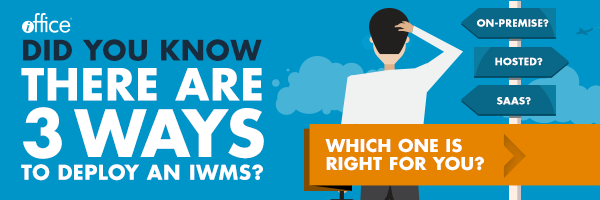Your job as a successful facilities manager requires you to possess an extensive set of skills, setting you apart from the rest. Below we have outlined ten of the most critical of these abilities–some may come naturally to you, while others may be more of a challenge. Your success as a facilities manager is contingent on your ability to develop your strengths in all areas of your position.
10 Skills for Facilities Managers
If you find yourself struggling with some of your duties, working to refine your current skill-set will greatly benefit you in the long run–for any job position you might find yourself in.
1. Public Speaking
Your main duty as a facility manager is to be a leader. A great leader knows their material well and is able to convey their message to those around them. Whether you are speaking to the CEO about the direction of the company or inspiring your team about upcoming projects, you will often find yourself on the podium.
Learning to be a good public speaker is a practiced skill that requires an air of confidence and knowledge about the subject matter. While a little bit of nervousness can prove beneficial, too much can hinder your success; so sharpening this skill will prove to be invaluable. If public speaking is not your strong suit, Toastmasters International has a wealth of information on their website (they also hold workshops) on everything from public speaking tips to speech writing techniques. With a little work and preparation even the most introverted can shine in the public speaking arena.
2. Writing
For some, writing is a skill that comes naturally, while for others it poses a great challenge. Regardless of which category you find yourself in, it is a strength everyone in the professional world should possess. Whether you are writing emails or business proposals, conveying your message in a clear and concise manner is critical to not only your success, but to your company’s success as well.
The good news is that writing can be a learned art. Websites such as Poynter.Org share tips and videos regarding spelling and grammar rules, as well as writing techniques. Stephen King’s Top 7 tips to Becoming a Better Writer is filled with useful information. Also, check with your local college–many of them offer creative writing courses that will help you build on your current writing skills.
3. Interviewing
While you may be great at what you do, every successful businessman will tell you they are only as great as the team they surround themselves with. You cannot do it all alone–you NEED a strong team. To do this, you will likely need to hire new people at some point in your career.
Knowing your strengths and weaknesses and what you require to build a stronger team is half the battle. Focus on your needs in a candidate and compile a list of appropriate questions. If you are not sure where to start, About.com and CareerBuilder share some top interview questions. One of our favorites is a list BYU has compiled, which includes questions on subjects anywhere from how well your candidate works with a team, to their integrity. Compile the list of questions most relevant to your interview, then print them out and review prior to the interview. After all, you want to make a good first impression as well.
4. Delegation
Remember we discussed not being able to do it all alone? This is why delegation is critical.
While many of us have that feeling that the only way for a job to get done right is to do it ourselves, letting go and delegating responsibilities is a must for a successful leader. Hopefully you have surrounded yourself with a team that is irrefutably good. Now, let them put their skills to work.
“Letting go” and assigning responsibilities to others is not always easy. The article “If Someone Else Can Do It, She Should”, is a great place to start, as it outlines six steps to successfully delegating. The proper assignment of duties shows you believe in your team’s abilities, further strengthening you, your team AND your entire organization.
5. Sales
Your position as a facilities manager does not typically require direct sales. However, it does often require you to sell yourself, your team and your ideas.
For example–you have done your research and have identified the areas of your company that need fine-tuning, particularly the procedures that need revamping. Through your research, you have found that the use of iOffice’s asset management software and space management software would streamline these procedural issues and, in turn, increase production. But this software will cost the company money. You now have to convince the executives that this will be money well spent. Your first step is to sell yourself, and ideas, as a valued asset to this company. The executives’ confidence in you, coupled with your preparation and product knowledge is what will aid you in gaining the support you need to get the job done.
6. Networking
Networking is a skill that can prove painful for even the most extroverted. It is also a skill that, regardless of your chosen career field, you must possess. As a facilities manager, you are in a small pool of like-minded professionals. While you have built a wealth of knowledge throughout your career, there are always new ideas and opportunities waiting just around the corner. Here is a blog post we wrote about the benefits of networking with other facility managers, highlighting just a few of the opportunities you and your team could find from networking. So, whether it is rubbing elbows at a conference, or communicating through social media, find your comfort zone and sharpen your networking skills. It will prove to be invaluable.
7. Proving Your Value
As a facilities manager, the executives upstairs are likely too busy to fully understand all that your job entails. To be a successful facility manager you need to prove your value to the top suite, HR department, IT department, as well as your own team. And since there is no one else to do this for you, this is a critical skill you must learn. There is a wealth of information on the web, as well as many books, with tips on how to strengthen your skills. AMA’s article “Fifteen Ways to Show Your Value at Work” provides some great tips on how to work smarter and strengthen your ability to sell yourself and what you bring to the table will. This will, ultimately, help define your success in your current position as well as all future endeavors.
8. Customer Service
As the facilities manager, you find yourself with the widest range of customers. The service you provide the executives upstairs, as well as your team and the rest of the employees at your company directly ties into the service the company’s clients receive. Your service is critical to the ENTIRE company’s success. Our article “Learning the Art of Proactive Customer Service” highlights strategies in anticipating your clients needs and issues BEFORE they arise. With the competitive arena what it is today, customers know they can take their business elsewhere if they are unhappy. Therefore, you must set the bar high, taking a proactive approach rather than a reactive one. Becoming a pioneer in the art of customer experience is the only way to find success.
9. Social Media
The need for social media as a facilities manager may seem a little less clear as within other industries, but the social media platform can prove to be an invaluable tool to you, if used properly. Aside from its obvious benefit as a networking tool, our ebook Social Media for Facility Managers outlines each social media site and provides a guide on how to gather useful information from each, that might have otherwise gone unnoticed.
Take, for example, the San Jose International Airport in California. Through their use of Facebook and Twitter, they are able to reach their customers, letting them know about gate changes, long wait times, or that a new restaurant venue has opened. Their customers are also able to use this as a platform for concerns that need to be addressed–such as a restroom that needs attention or a teleprompter that is down in Gate 7. Social media provides a gateway, allowing events to be reported as they unfold, enabling you to organize immediate response efforts.
10. Facilities Management Software
Perhaps the most obvious (and most important) skill every facilities manager must learn is facility management software. Facilities management plays a critical role in how companies deliver their product or service. Therefore, today’s facilities management is constantly searching for opportunities to streamline workflow and eliminate redundant tasks. It is with software technology such as integrated workspace management solutions (IWMS) that facilities management teams have found their solutions. It is these tools that enhance your processes, enabling the entire team to access valuable information in real time. While the prior nine skills we have mentioned can be agonizing to learn, facilities management software does not have to be. Take a tour of iOffice’s software for example–not only will it help you streamline workflows and eliminate redundant tasks, it is also easy to learn and quick to implement.
How Facilities Managers Can Impact Their Organization
The success of your company is heavily reliant on your skills and knowledge. While you may not be the entire company, many departments within the organization look to you for leadership and guidance. What other skills do you think are critical to a facilities manager’s success?


